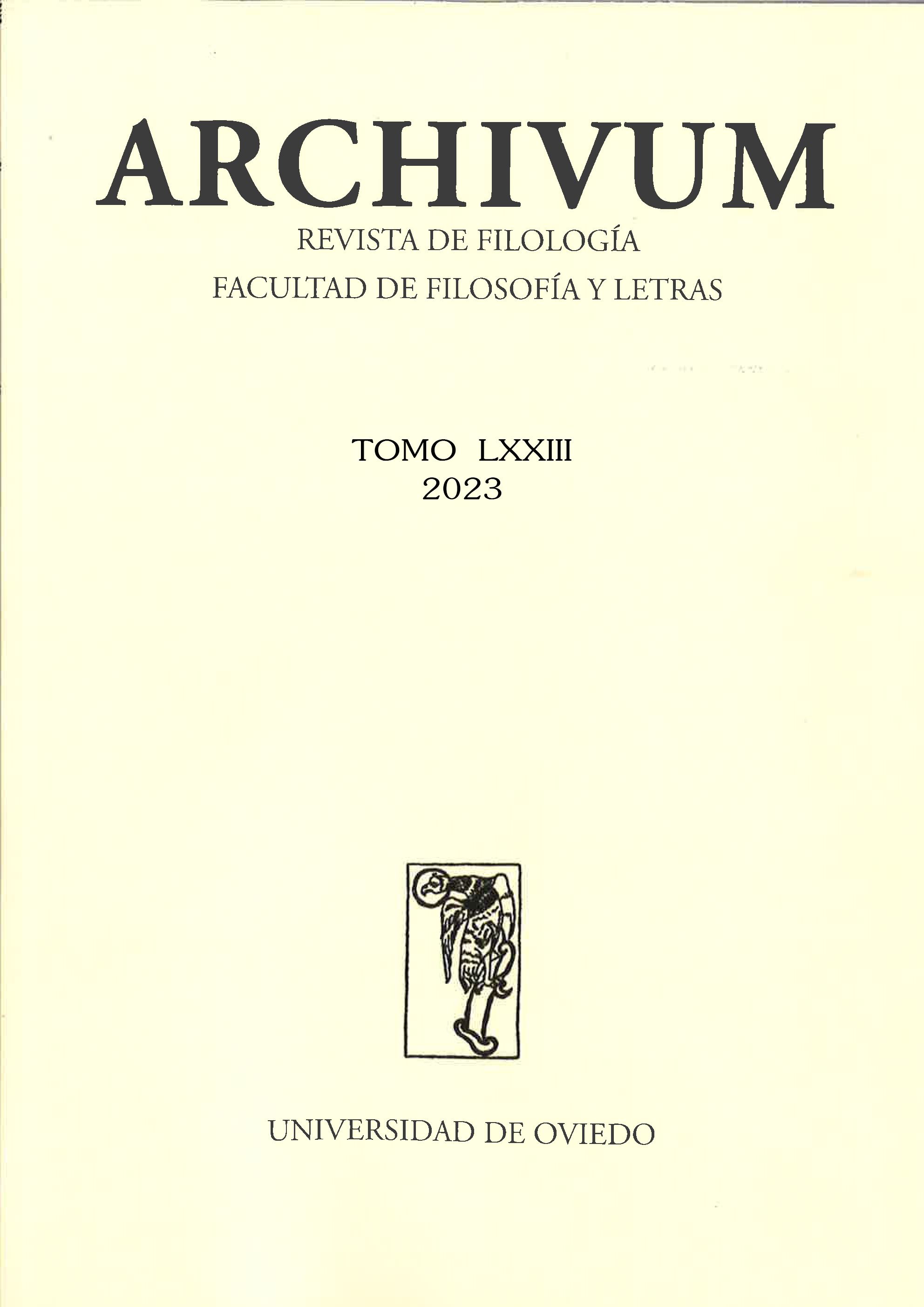Abstract
The aim of this article is to carry out a contrastive study of the discourse markers pour dire les choses (comme elles sont), in French, and las cosas como son, in Spanish. Both markers have a feature in common: they allow the speaker to participate in the instantiation of an utterance as the spokesperson of a discourse whose origin is foreign to him/her and to which he/she decides to adhere. Despite this coincidence, pour dire les choses and las cosas como son differ in their form: the former has a lexical matrix form with paradigmatic variants that complete its semantic and pragmatic features. The second, on the other hand, would be a completely lexicalised adverbial locution, with no combinatory possibilities, although it does have a similar form which appears in the corpus in a free structure and with parameters very similar to those of the fixed expression.
References
Anscombre J.-C. (2006) “Polyphonie et classification des énoncés sentencieux”, Le Français Moderne, 74, 1, pp. 87-99.
Anscombre, J.-C. (2016) “Les constructions en adverbe que p en français. Essai de caractérisation sémantique d’une matrice lexicale productive”, Cahiers de Lexicologie. Phraséologie et linguistique appliquée, 108, 1, pp. 199-223.
Anscombre, J.-C., Donaire, M. L. y Haillet P. P. (eds.) (2018) Opérateurs discursifs du français, 2. Éléments de description sémantique et pragmatique. Berna: Peter Lang.
Bosque, I. y Gutiérrez-Rexach, J. (2009) Fundamentos de sintaxis formal. Madrid: Ediciones Akal.
Briz, A., Pons, S. y Portolés, J. (coords.) (2008) Diccionario de partículas discursivas del español. En línea, www.dpde.es [fecha de consulta 1/08/22].
Coltier, D. y Dendale, P. (2004) “La modalisation du discours de soi: éléments de description sémantique des expressions pour moi, selon moi y a mon avis”, Langue Française, 142, pp. 41-57.
Ducrot, O. (1984) Le dire et le dit. Paris : Ed. Minuit.
Fuentes Rodríguez, C. (2010) Diccionario de conectores y operadores del español. Madrid: Ed. Arco-Libros.
Hermoso, A. (2020) “Deux manières de dire les choses: pour ainsi dire et pour dire les choses (comme elles sont)”, in Rouanne, L. y Anscombre, J.-C. (coords.). Histoires de dire 2. Petit glossaire des marqueurs formés sur le verbe dire. Berna: Peter Lang, pp. 179-202.
Hermoso, A. (2022) El adverbio francés y sus combinaciones. Ed. Peter Lang.
Portolés, J. (1998) Marcadores del discurso. Madrid: Ed. Ariel.

This work is licensed under a Creative Commons Attribution-NonCommercial-NoDerivatives 4.0 International License.


